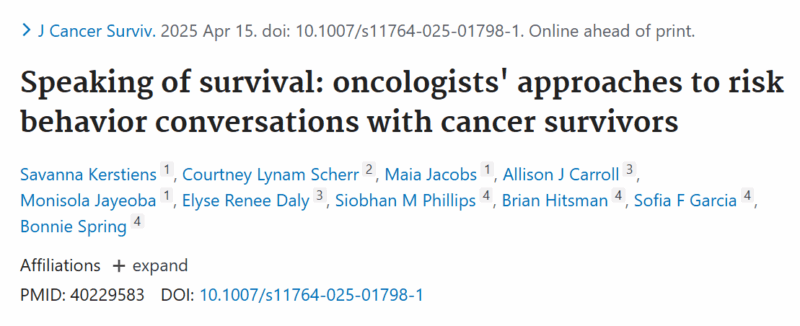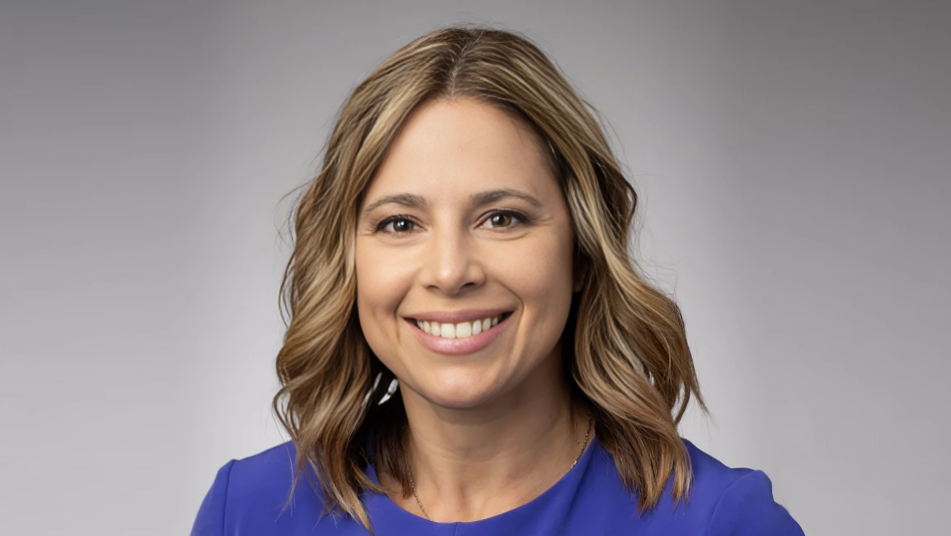Sami Mansfield, Founder of Cancer Wellness for Life, shared a post on LinkedIn:
“Only 1 in 3 oncologists consistently talk to survivors about diet, exercise, or smoking – and most wait for the patient to bring it up.
Let that sink in.
Despite clear evidence linking healthy habits to lower recurrence and better long-term health, a new study reveals these life-changing conversations often never happen in survivorship care.
Sensitive topics like weight? Usually avoided. Actionable guidance? Too often missing.
What did the study show?
Patient-centered…or benevolent bias? Many clinicians tailor the depth of conversation based on what they think the patient can handle—hoping to protect the relationship and patient self-image. While well-intentioned, this “benevolent bias” can mean key risks go undiscussed.
Specialists and programs fill the gap: Most oncologists refer out for specific risk management, but this can leave survivors underestimating the importance of their lifestyle choices.
Result: Missed Opportunities for Prevention. Survivors may not get the clear, actionable guidance they need—despite strong evidence and published guidelines showing healthy behaviors reduce recurrence and improve quality of life.
Takeaway:
Patient-centered care is vital, but avoiding direct conversations about modifiable risk factors may undermine survivorship outcomes. To move from intention to action, oncologists need support and tools to confidently engage in meaningful, specific risk management conversations.
How I Help Bridge the Gap – 3 Simple, Actionable Strategies for Oncology Teams:
1. White-Labeled Content Library:
Ready-to-use, evidence-based patient education materials on nutrition, movement, sleep, and more—custom-branded for your organization. No need to create content from scratch.
2. Easy Program Referral Pathway:
If your team is short on time or resources, we have the pathways to refer survivors—ensuring they receive expert, personalized guidance on lifestyle risk reduction and healthy habit formation.
3. Lifestyle Shift: Plug-and-Play Survivorship Program:
My Lifestyle Shift program is designed for seamless integration. It’s more than education—it’s a turnkey experience that teaches survivors how to build sustainable habits, connects them with a supportive community, and provides ongoing implementation support for your clinic or organization. Better yet, our partners receive both their participant data along with general program data to meet credentialing needs.
Bottom line:
You don’t have to do it alone. Let’s make risk reduction easy, evidence-based, and actionable – for both survivors and providers.
How are you supporting clear, compassionate risk conversations in your practice? What tools or training do you wish you had? Let’s talk implementation!”
Title: Speaking of survival: oncologists’ approaches to risk behavior conversations with cancer survivors
Authors: Savanna Kerstiens, Courtney Lynam Scherr, Maia Jacobs, Allison J Carroll, Monisola Jayeoba, Elyse Renee Daly, Siobhan M Phillips, Brian Hitsman, Sofia F Garcia, Bonnie Spring

More posts featuring Sami Mansfield on OncoDaily.


